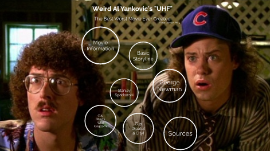Background Noise
Transcript: Popular Music on Both Sides Messages in Propaganda Though the Allies and Axis typically listened to different styles of music, one particular number become popular with both sides. “Lili Marlene”, a ballet originally written by Hans Leip, a German soldier, and Norbert Schultze, became well known on all fronts of the war. An English and French version were created in 1943. Famous Propaganda Stations The Berlin Olympics, opening ceremony. On the opposite side, a different type of propaganda was used by the British, known as “black propaganda”. The most prominent use of black propaganda was by Gustav Siegfried Eins, or Sefton Delmer. Delmer pretended to be a high ranking Nazi officer and a Hitler supporter in order to gain popularity. He went by the name “Der Chef” on air, and used his popularity to form the illusion of corruption within the Nazi leadership. He even faked his own assassination on air and created more stations. These included Soldatensender Calais, which broadcasted to German soldiers stationed in France, and Atlantiksender, which spread misinformation to German U-Boats. Works Cited Background Noise In the 1940s, radio became popular, especially in the United States. Americans relied on it for entertainment and World War II updates. Millions of people would tune it to radio shows at one time. Single advertisers sponsored whole shows on various topics, such as propaganda, mystery, westerns, soap operas, dramas, comedies, and more. The Lone Ranger was a popular show that aired for twenty-two years. The Jack Benny Program was another popular broadcast that aired for twenty-six years. Both of these shows switched from radio to television shows in the 1950s. Some of the biggest names on the radio during World War II were The Marx Brothers, Burns and Allen, Jack Benny, and Fred Allen. Types of Propaganda Hollywood stars did not go on the radio much at first because they thought people would not go to as many movies if they could hear the stars on the radio. There were shows about Hollywood gossip, like Louella Parsons and Walter Winchell, so people got their information from the gossip channels. Eventually, stars realized that if people heard movie previews, interviews, and reviews they would be more interested in going to see the movies. Millions for Defense and Treasury Star Parade were radio programs based totally on selling government war bonds. Popular Radio Programs Near the beginning of the war, in America, Jazz was reaching its peak. It had become so popular in Allied countries, that Germany banned the style with censorship laws. Germans turned to ballets, folk music, and patriotic songs, in hopes of helping the war efforts. As the end of the war drew closer, the popularity of large band music began to fade, as a style derived from Jazz rose known as “bebop”, while Blues began forming early stages of rock and roll. Different tactics were used in radio programs to get support for the war. Often times, Hollywood stars and famous athletes would promote war bonds through music and interviews. Meanwhile, anyone who ran a radio station would use positive propaganda to promote their country and military, or negative propaganda, to mock their enemies Another type of propaganda was known as "Black Propaganda". It was mainly used in World War II, where someone would broadcast in an enemy country, disguised as a supporter of that government. The goal was to create a negative image of the leaders or military. Radio propaganda was extremely influential during World War II, and a few stations stood out. On the Axis side, the station called Radio Tokyo became very well known. It was run by a group of women, all known by one name: Tokyo Rose. The most popular member was Iva Toguri, an American born woman who was stranded in Japan when the war started. Toguri had been visiting relatives in Japan, and was unable to travel back to her home when the US entered the war. She took up a job at Radio Tokyo, running “Zero Hour”, in which she mocked American soldiers. When the war was over, Toguri was accused of treason, but pardoned because no proof was supplied that she was revealing military secrets. Radio programs reminded people regularly to keep secrets of war and avoid discussing military tactics. They were also encouraged to grow their own food so that the government's food could be sent to the troops. Radio programs used negative propaganda to portray the enemy as evil. They also tried to persuade soldiers into enlisting. Addis, Cameron. "Berlin Olympics: World War II." World at War: Understanding Conflict and Society. ABC-CLIO, 2014. Web. 29 Mar. 2014. "The Andrews Sisters." Pop Culture Universe: Icons, Idols, Ideas. ABC-CLIO, 2014. Web. 29 Mar. 2014. Batchelor, Bob. "Radio in the 1940s." Pop Culture Universe: Icons, Idols, Ideas. ABC-CLIO, 2014. Web. 29 Mar. 2014. "Berlin Olympics: opening ceremony." Image. The Illustrated London News Picture Library. World at War: Understanding Conflict and Society.

















